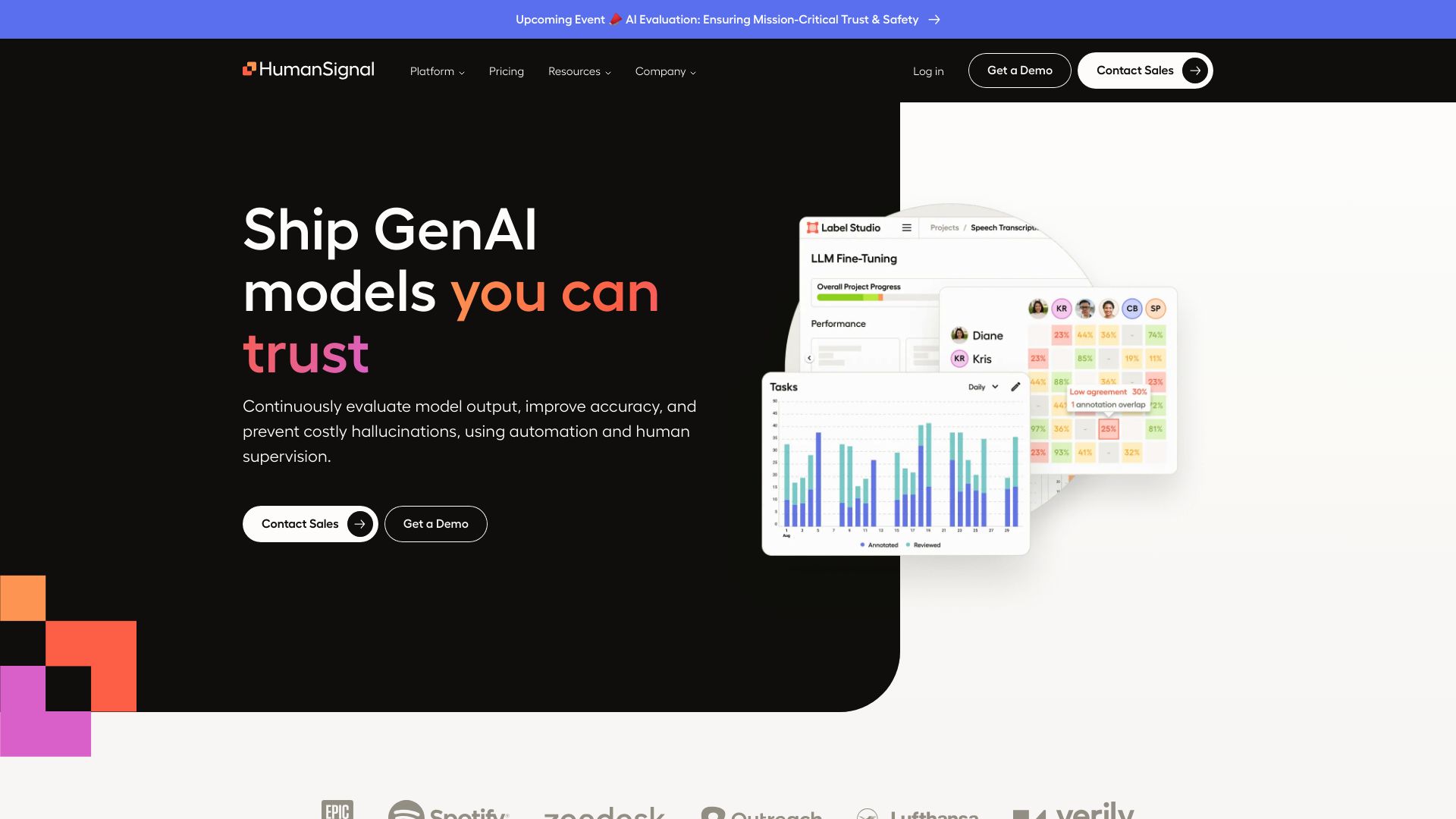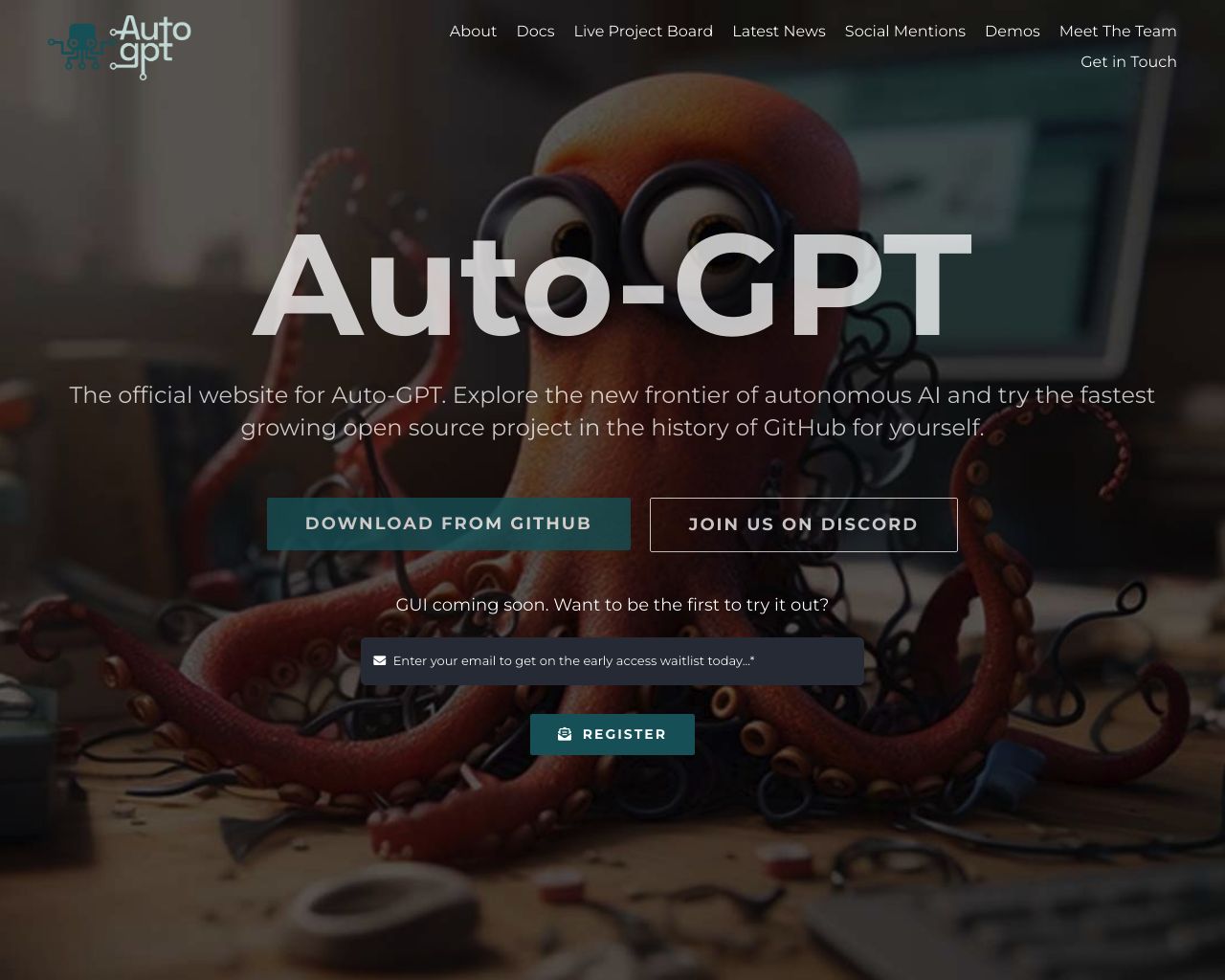Adala vs AutoGPT: Which AI Tool Stands Out?
Artificial intelligence revolutionizes business processes, and choosing the right AI platform can make or break an organization’s digital transformation. This comparison delves into three leading AI solutions: Adala, AutoGPT, and SmythOS. We examine their unique approaches to AI development, autonomous agents, and data labeling. By exploring their features, strengths, and limitations, we aim to help developers, business leaders, and AI enthusiasts make informed decisions about which platform best suits their needs. From Adala’s innovative data labeling framework to AutoGPT’s ambitious pursuit of artificial general intelligence, and SmythOS’s comprehensive AI development ecosystem, this analysis provides crucial insights for anyone looking to harness the power of AI in their projects or enterprises.
Adala Overview
Adala revolutionizes data labeling with its innovative open-source framework for autonomous AI agents. These agents learn and improve through interactions with ground truth datasets, evolving into efficient prediction engines for large-scale data labeling tasks.


Developed by Adala, formerly known as Heartex, this platform tackles the challenges of data-centric AI head-on. It seamlessly integrates human expertise with machine learning workflows, offering a powerful solution for data scientists and researchers working on complex classification and labeling projects.
Adala revolutionizes data labeling with its innovative open-source framework for autonomous AI agents… evolving into efficient prediction engines for large-scale data labeling tasks.
Adala’s framework supports multiple data types, including text, video, and images. It provides collaborative tools for team-based workflows and offers detailed performance analytics. The platform’s emphasis on explainable AI and transparency builds trust in the labeling process, crucial for industries requiring high accuracy and accountability.
While Adala excels in autonomous data labeling, it lacks certain features found in more comprehensive AI development platforms. The absence of a visual builder or no-code editor may limit accessibility for non-technical users. Additionally, the platform doesn’t offer specific debugging tools or deployment options like webhooks or site chat integrations.
Despite these limitations, Adala’s focus on reliable, efficient, and scalable data labeling processes makes it a valuable tool for organizations dealing with large datasets. Its ability to combine human intelligence with AI capabilities ensures labeled data aligns with human values and interests, a critical factor in developing trustworthy AI systems.
AutoGPT Overview
AutoGPT revolutionizes AI development by enabling the creation of autonomous agents capable of complex problem-solving. This open-source platform, developed by Toran Bruce Richards and released by Significant Gravitas Ltd., harnesses OpenAI’s GPT-4 to perform tasks without constant human input.
Unlike traditional AI models, AutoGPT breaks down large tasks into manageable subtasks, uses the internet for up-to-date information, and maintains short-term memory for context. This autonomous approach makes it suitable for diverse applications, from software development to market research and content creation.
AutoGPT revolutionizes AI development by enabling the creation of autonomous agents capable of complex problem-solving… harnesses OpenAI’s GPT-4 to perform tasks without constant human input.


Key features of AutoGPT include self-debugging code, file management for improved data structure, and multimodal input processing. The platform has spawned various specialized agents, such as ChefGPT for recipe generation and ChaosGPT for testing destructive capabilities.
Despite its advanced features, AutoGPT faces challenges. The system can produce errors due to self-feedback loops, experience hallucinations, and incur high operational costs. It also lacks long-term memory, which can impact its performance on extended tasks.
AutoGPT’s vision aligns with the pursuit of artificial general intelligence (AGI), setting it apart from models like ChatGPT that require continuous human prompts. Its open-source nature and autonomous decision-making capabilities have garnered significant attention from the tech community and investors, marking a milestone in AI development.
AutoGPT’s vision aligns with the pursuit of artificial general intelligence (AGI), setting it apart from models like ChatGPT that require continuous human prompts.
Feature Comparison
SmythOS outshines both Adala and AutoGPT in core components and security features. While Adala excels in autonomous data labeling, it lacks SmythOS’s comprehensive visual builder and no-code editor. These tools democratize AI development, allowing users of all skill levels to create sophisticated agents. SmythOS also offers superior debugging capabilities and deployment options, including webhooks and site chat integrations, which Adala does not provide.
AutoGPT, though powerful in its autonomous capabilities, falls short in several areas where SmythOS excels. SmythOS offers a more user-friendly interface with its visual builder, making it accessible to non-technical users. Additionally, SmythOS provides robust security features like constrained alignment and data encryption, which are crucial for enterprise-level deployments but not prominently featured in AutoGPT.
SmythOS’s multi-agent collaboration and human-AI interaction capabilities surpass those of both Adala and AutoGPT, offering a more comprehensive solution for complex, real-world applications. Its scalability, extensive API integrations, and support for various data types further cement its position as the superior choice for businesses seeking a versatile, secure, and user-friendly AI development platform.
Feature Comparison Table
| Adala | AutoGPT | SmythOS | |
|---|---|---|---|
| CORE FEATURES | |||
| Hosted Agents (Dev, Production) | ✅ | ❌ | ✅ |
| Visual Builder | ❌ | ✅ | ✅ |
| No-Code Options | ❌ | ✅ | ✅ |
| Explainability & Transparency | ✅ | ❌ | ✅ |
| Audit Logs for Analytics | ❌ | ❌ | ✅ |
| Agent Work Scheduler | ✅ | ❌ | ✅ |
| SECURITY | |||
| Constrained Alignment | ✅ | ❌ | ✅ |
| IP Control | ❌ | ❌ | ✅ |
| COMPONENTS | |||
| Data Lakes | ❌ | ❌ | ✅ |
| DEPLOYMENT OPTIONS (EMBODIMENTS) | |||
| Staging Domains | ❌ | ❌ | ✅ |
| Production Domains | ❌ | ❌ | ✅ |
| Deploy as Scheduled Agent | ❌ | ❌ | ✅ |
| DATA LAKE SUPPORT | |||
| Hosted Vector Database | ✅ | ❌ | ✅ |
| Sitemap Crawler | ❌ | ❌ | ✅ |
| YouTube Transcript Crawler | ❌ | ❌ | ✅ |
Best Alternative to Adala and AutoGPT
SmythOS stands out as the superior alternative to Adala and AutoGPT, offering a comprehensive AI automation platform that combines power with accessibility. Our visual builder and no-code editor democratize AI development, allowing users of all skill levels to create sophisticated agents without extensive coding knowledge. This feature set drastically outpaces Adala’s focus on autonomous data labeling and AutoGPT’s code-heavy approach.
SmythOS stands out as the superior alternative to Adala and AutoGPT, offering a comprehensive AI automation platform that combines power with accessibility.
We provide unparalleled flexibility in deployment options, including APIs, webhooks, and site chat integrations. This versatility enables seamless integration into existing workflows and systems, a capability that neither Adala nor AutoGPT can match. Our platform also excels in security features, offering robust data encryption and constrained alignment to ensure AI behavior aligns with organizational goals and ethical guidelines.
Our multi-agent collaboration capabilities surpass both competitors, allowing for complex, real-world applications that mimic human team dynamics. This, combined with our advanced human-AI interaction features, creates a more comprehensive and adaptable solution for businesses seeking to leverage AI across various departments and use cases.
SmythOS’s scalability and extensive API integrations further cement its position as the top choice. We support a wide array of data types and formats, from PDFs to YouTube transcripts, providing a versatile platform that grows with your needs. Unlike Adala and AutoGPT, we offer a hosted vector database and data lake support, enabling efficient handling of large-scale data operations essential for enterprise-level deployments.
SmythOS’s scalability and extensive API integrations further cement its position as the top choice.
By choosing SmythOS, you’re not just selecting a tool – you’re embracing a future-proof platform that combines ease of use with cutting-edge AI capabilities, ensuring your business stays ahead in the rapidly evolving landscape of AI automation.
Conclusion
Adala, AutoGPT, and SmythOS each offer unique approaches to AI development and automation. Adala excels in autonomous data labeling, providing a specialized solution for organizations dealing with large datasets. AutoGPT pushes the boundaries of AI autonomy, showcasing impressive problem-solving capabilities. However, SmythOS emerges as the superior choice for businesses seeking a comprehensive, user-friendly AI development platform.
SmythOS combines the best of both worlds, offering autonomous agent capabilities with a user-friendly interface. Its visual builder and no-code editor democratize AI development, allowing users of all skill levels to create sophisticated agents. Unlike Adala and AutoGPT, SmythOS provides robust security features, extensive API integrations, and versatile deployment options, making it ideal for enterprise-level applications.
While Adala and AutoGPT have their strengths, SmythOS’s well-rounded feature set, including multi-agent collaboration, human-AI interaction, and scalability, positions it as the go-to platform for businesses looking to leverage AI across various functions. Its ability to support multiple data types, coupled with advanced security measures like constrained alignment and data encryption, ensures that SmythOS can handle complex, real-world applications securely and efficiently.
To experience the power of SmythOS firsthand, create a free SmythOS account today. With unlimited agents and a 30-day money-back guarantee, you can explore AI automation without risk. Unlock limitless AI integrations and deploy your AI agents anywhere with SmythOS, revolutionizing your workflow and unleashing the full potential of AI for your business.
Last updated:
Disclaimer: The information presented in this article is for general informational purposes only and is provided as is. While we strive to keep the content up-to-date and accurate, we make no representations or warranties of any kind, express or implied, about the completeness, accuracy, reliability, suitability, or availability of the information contained in this article.
Any reliance you place on such information is strictly at your own risk. We reserve the right to make additions, deletions, or modifications to the contents of this article at any time without prior notice.
In no event will we be liable for any loss or damage including without limitation, indirect or consequential loss or damage, or any loss or damage whatsoever arising from loss of data, profits, or any other loss not specified herein arising out of, or in connection with, the use of this article.
Despite our best efforts, this article may contain oversights, errors, or omissions. If you notice any inaccuracies or have concerns about the content, please report them through our content feedback form. Your input helps us maintain the quality and reliability of our information.
